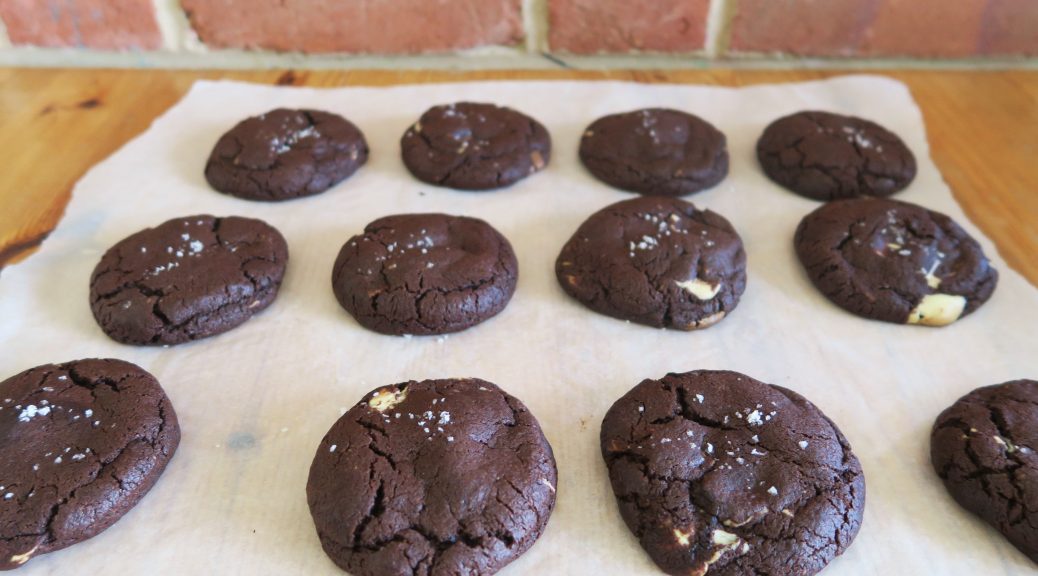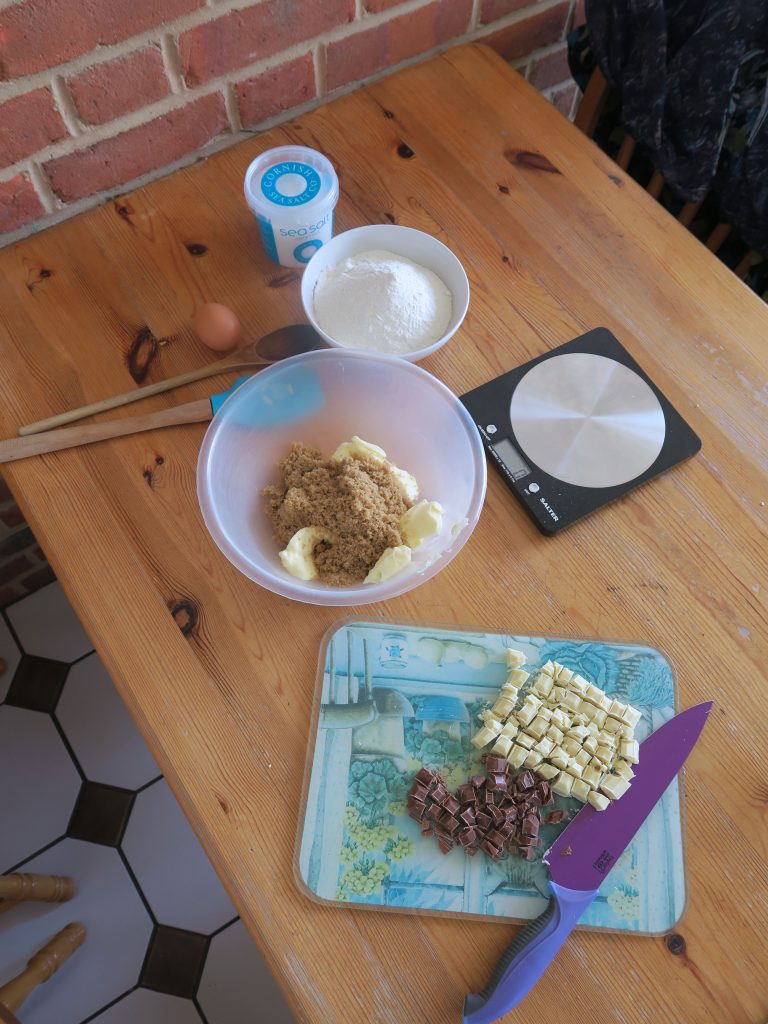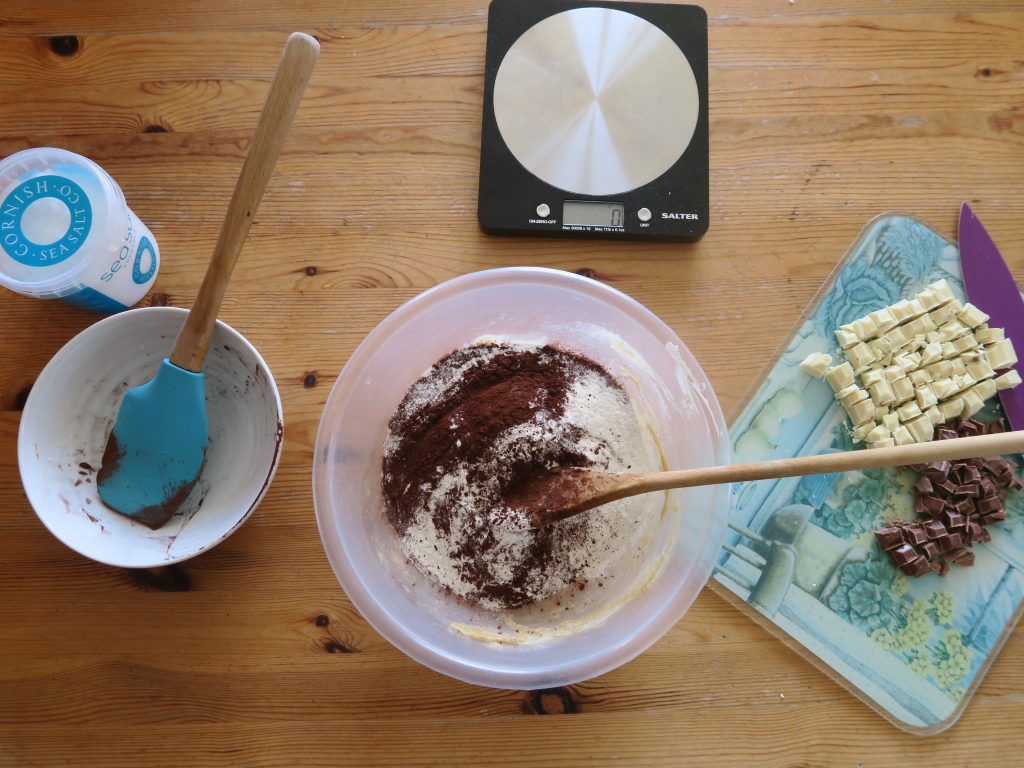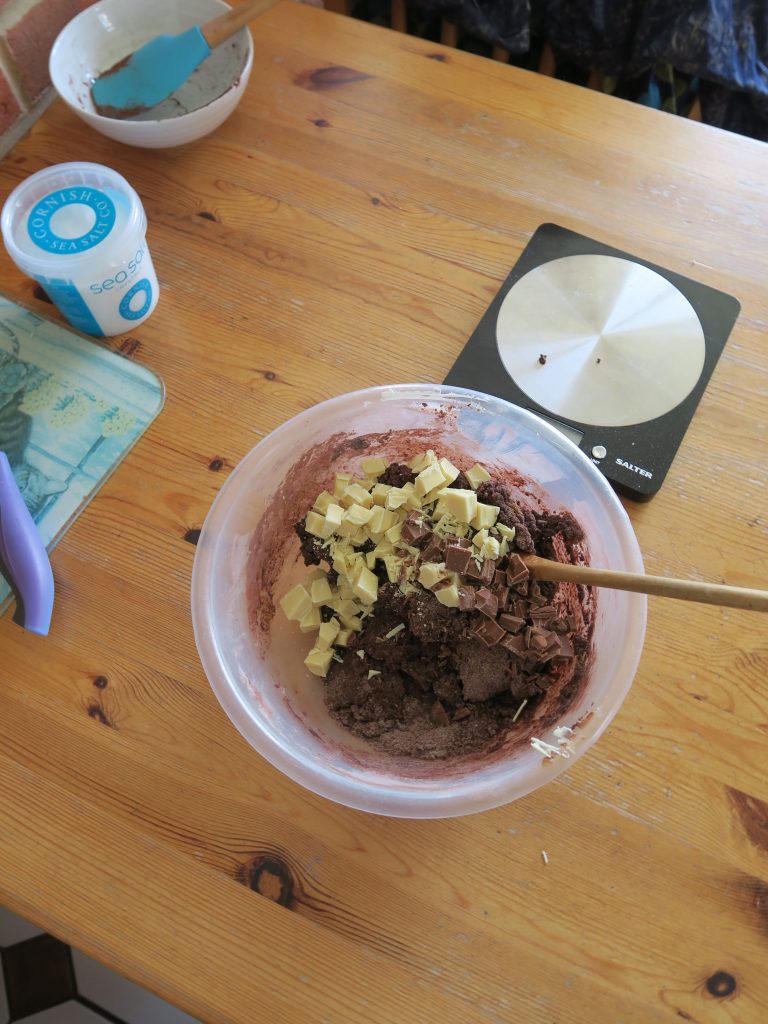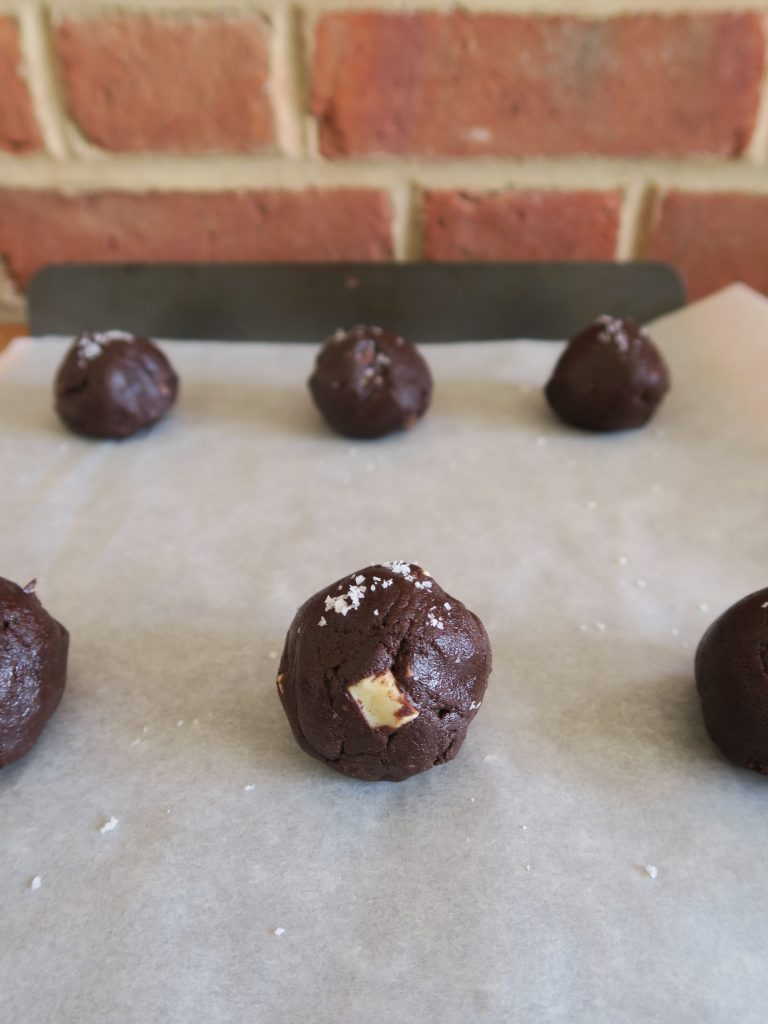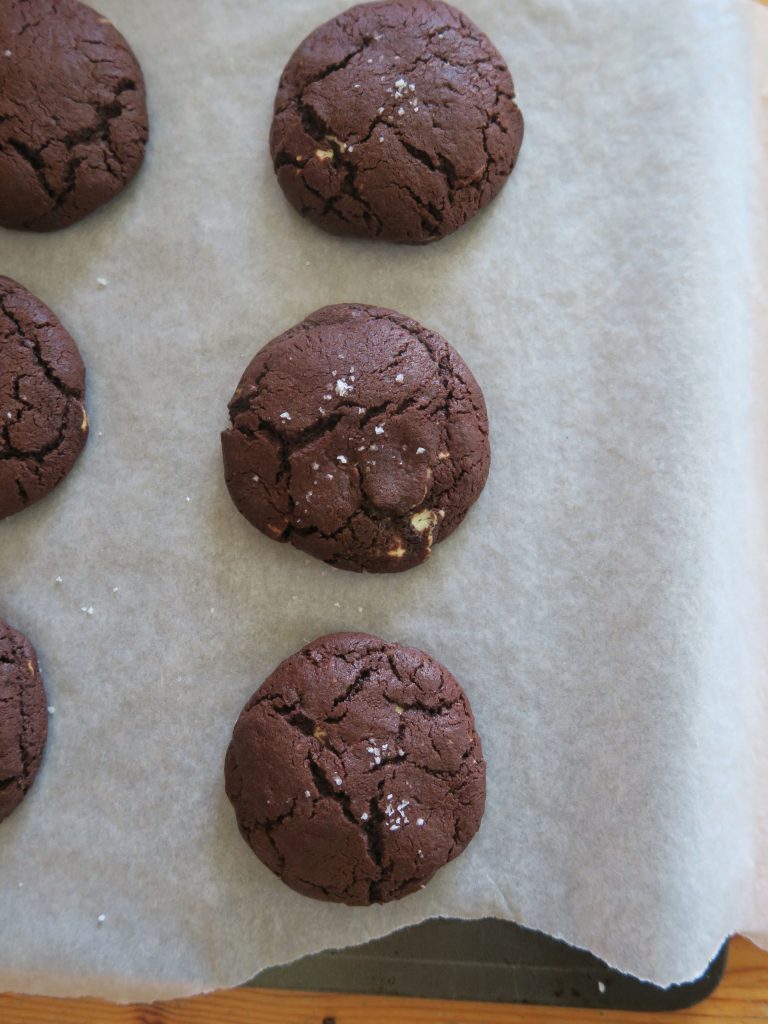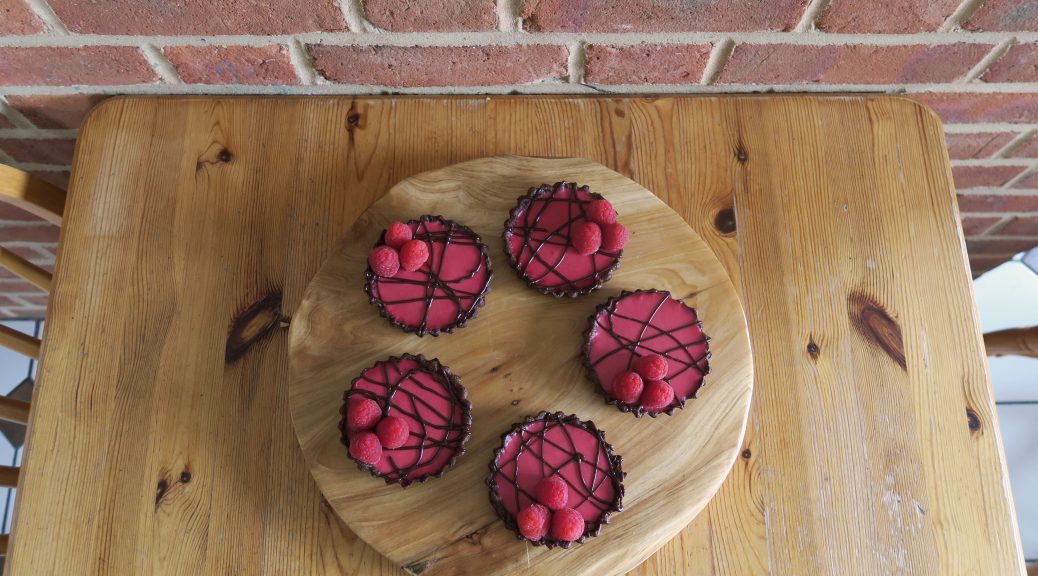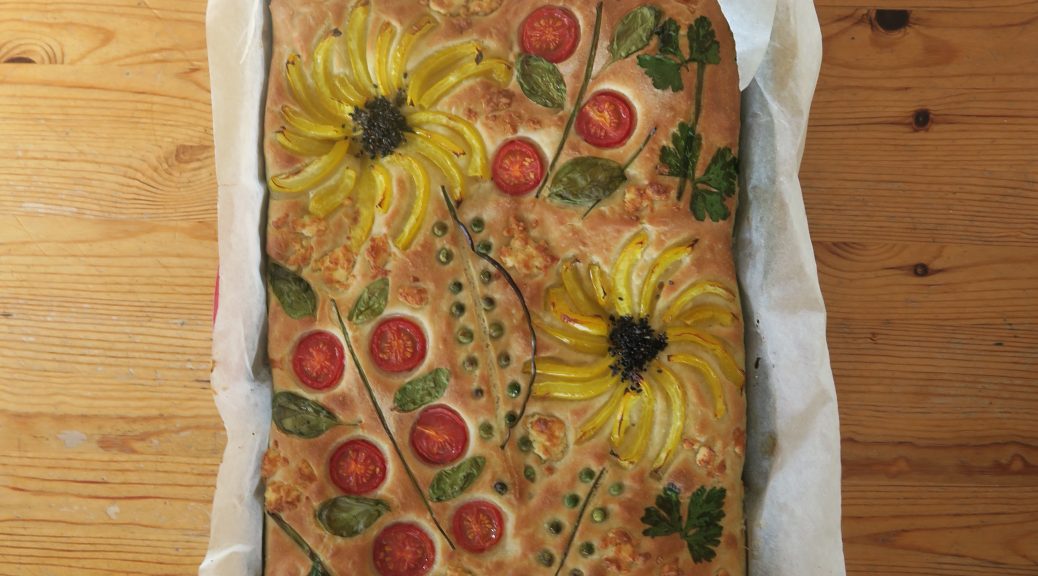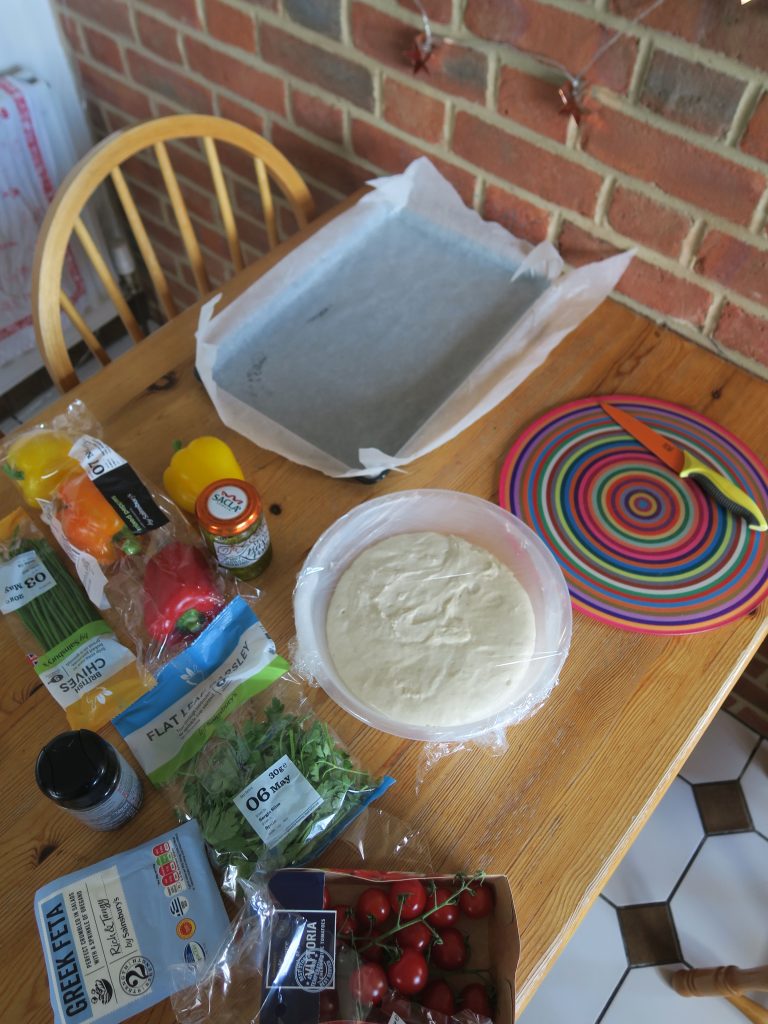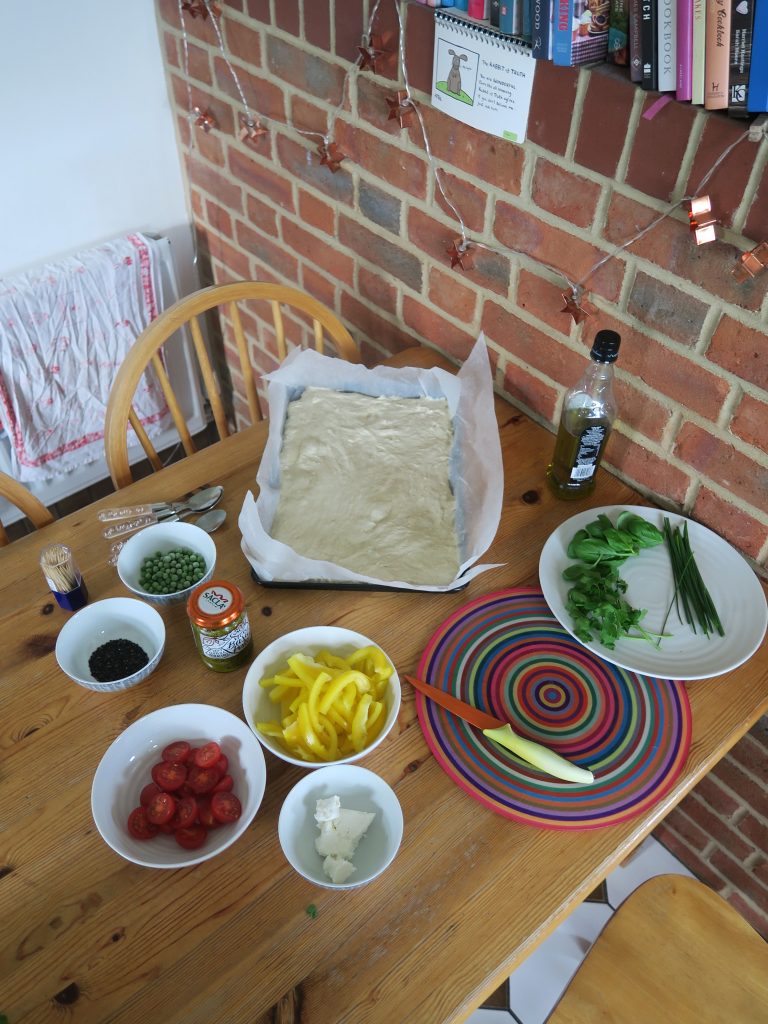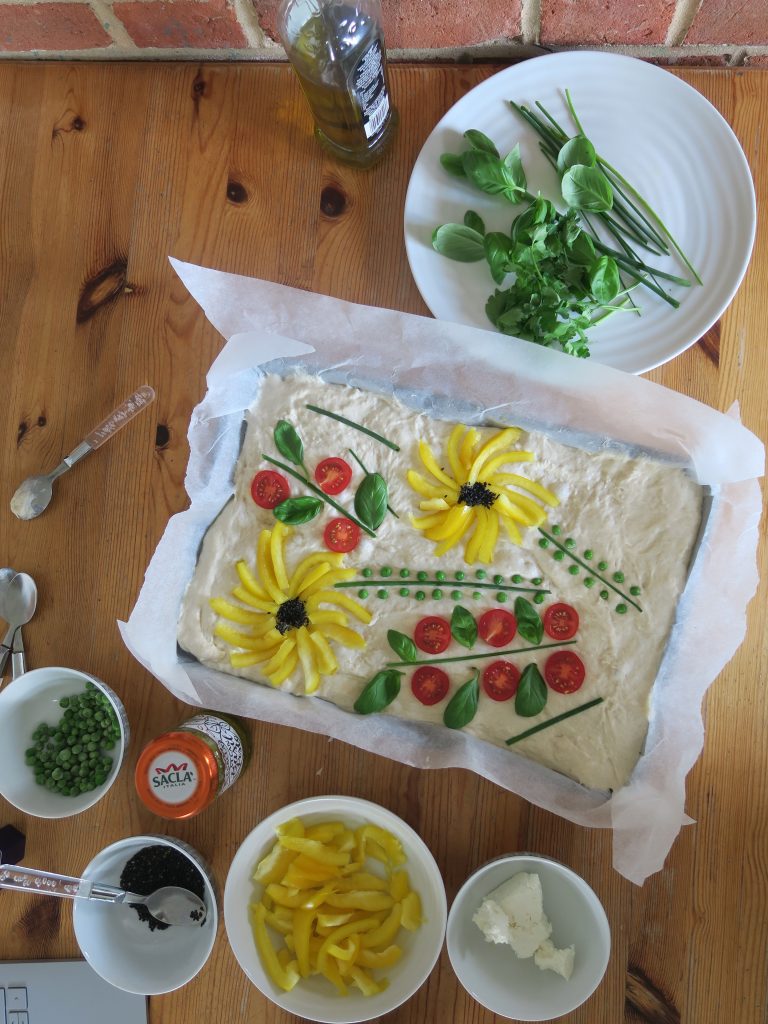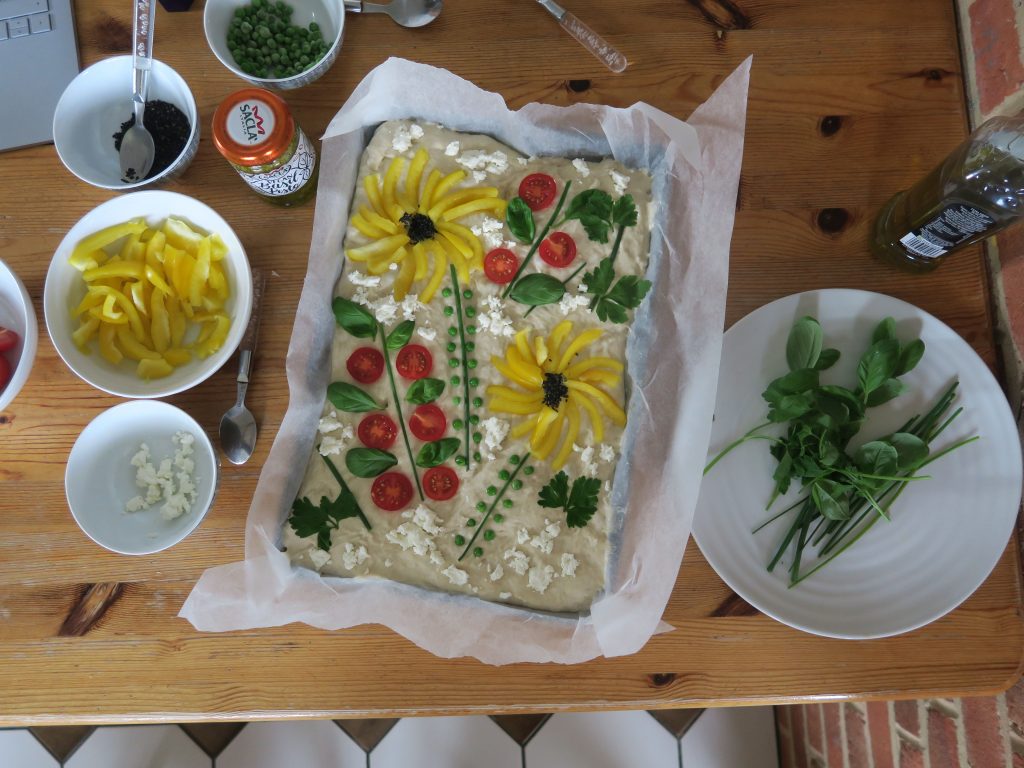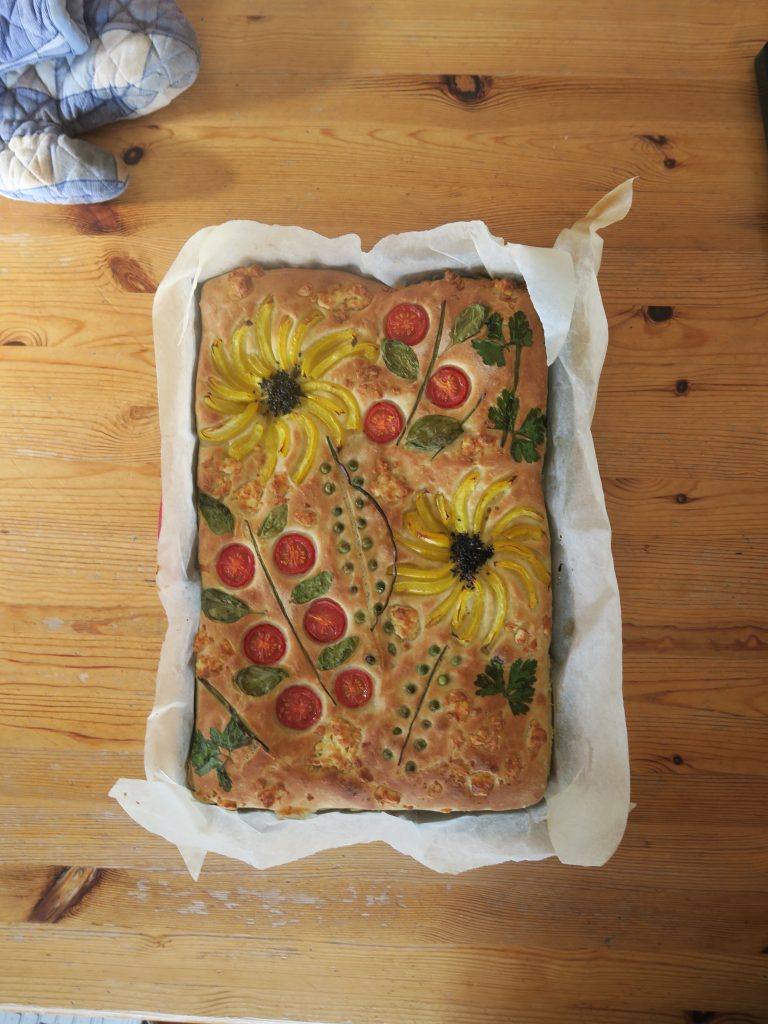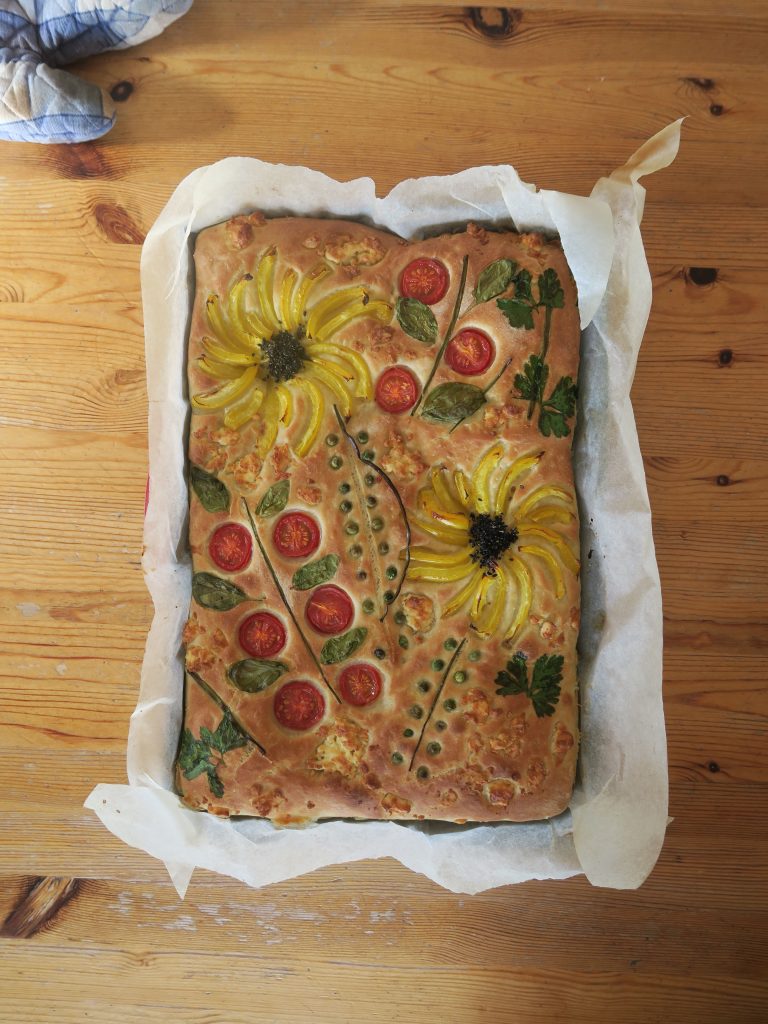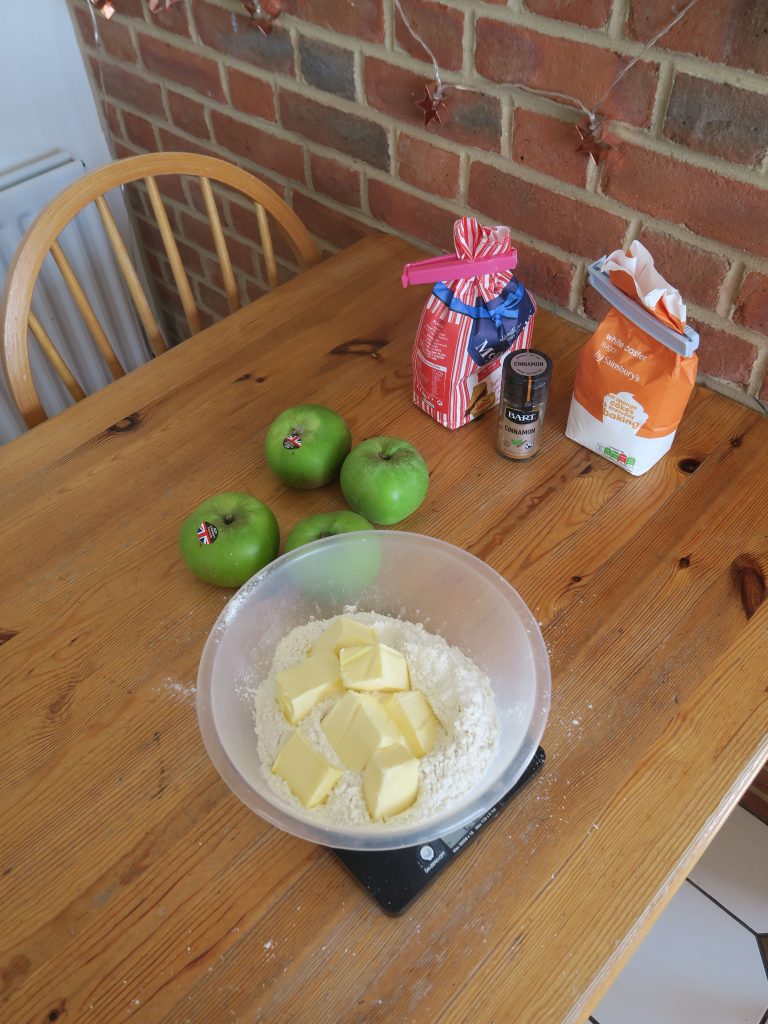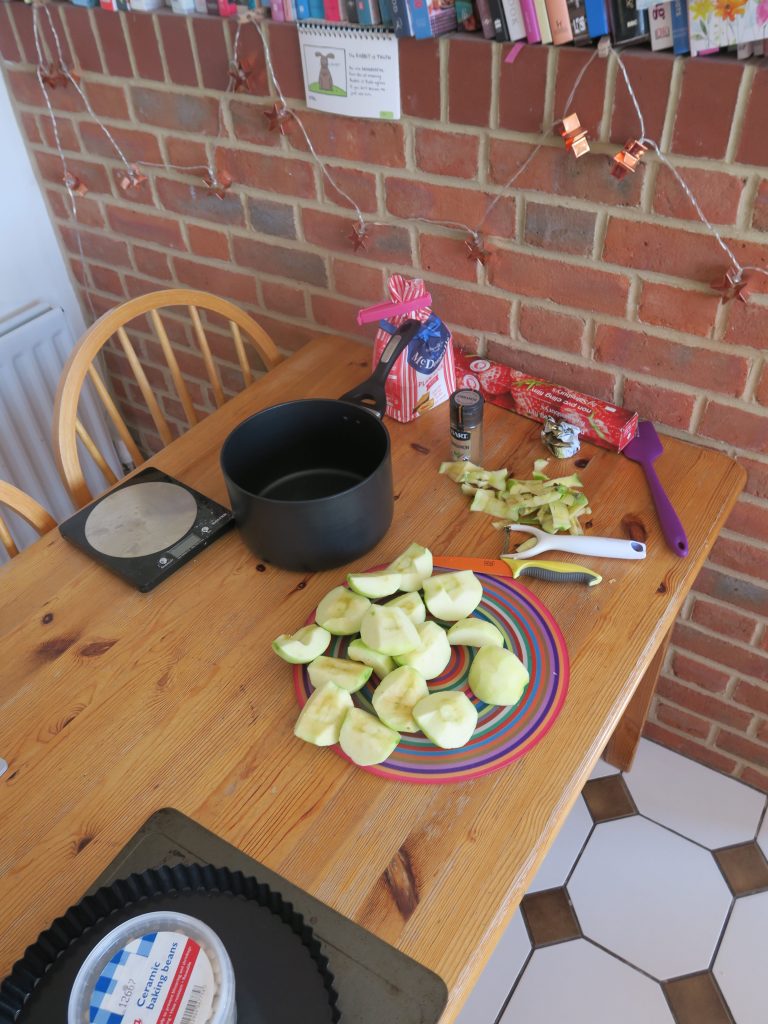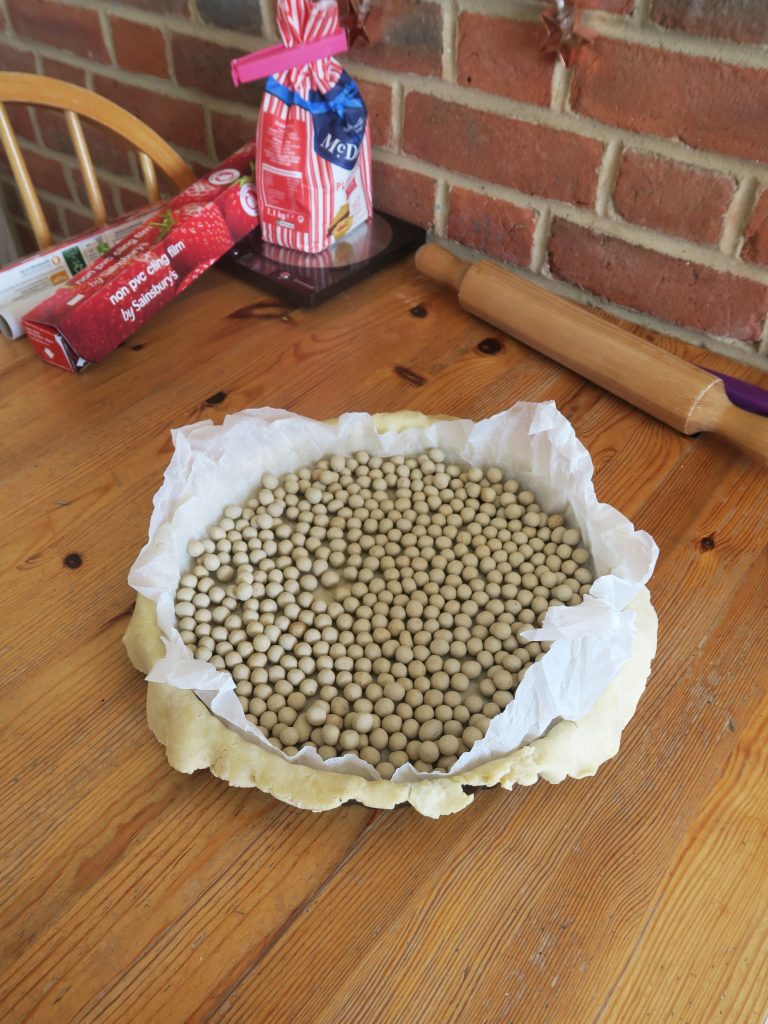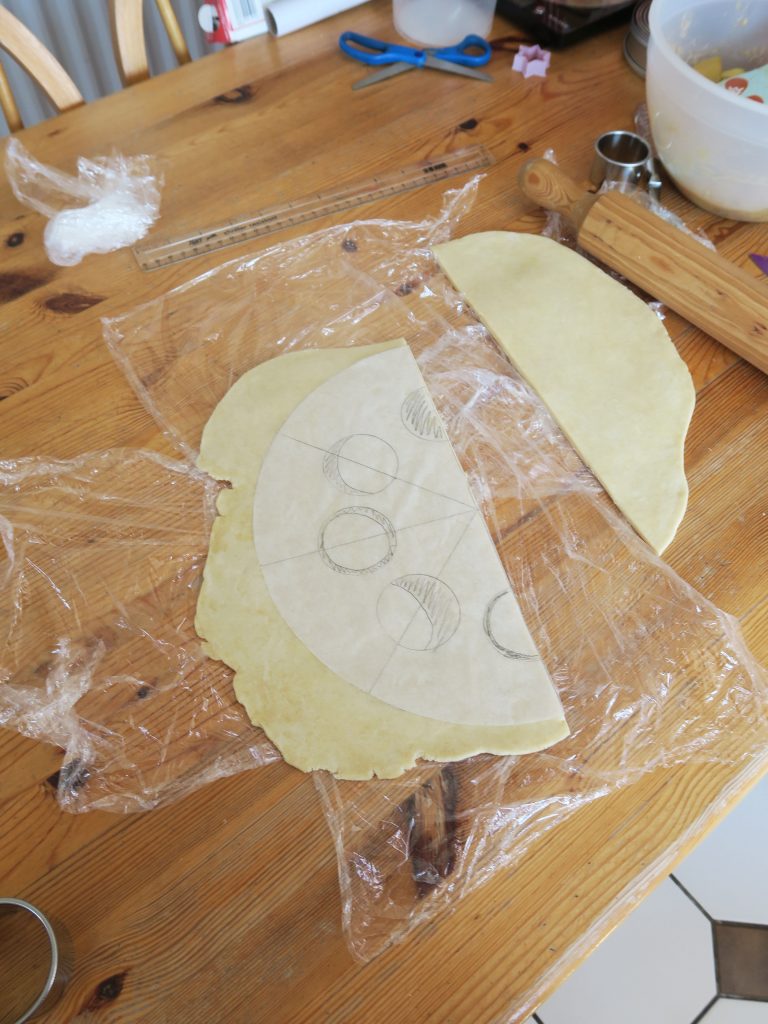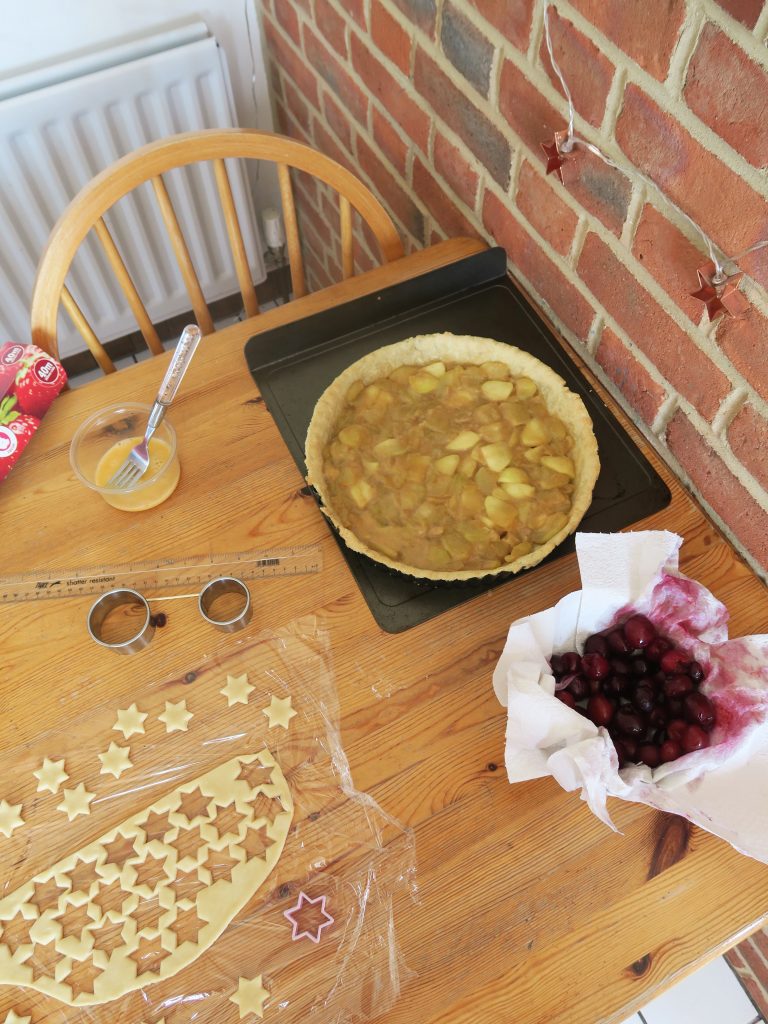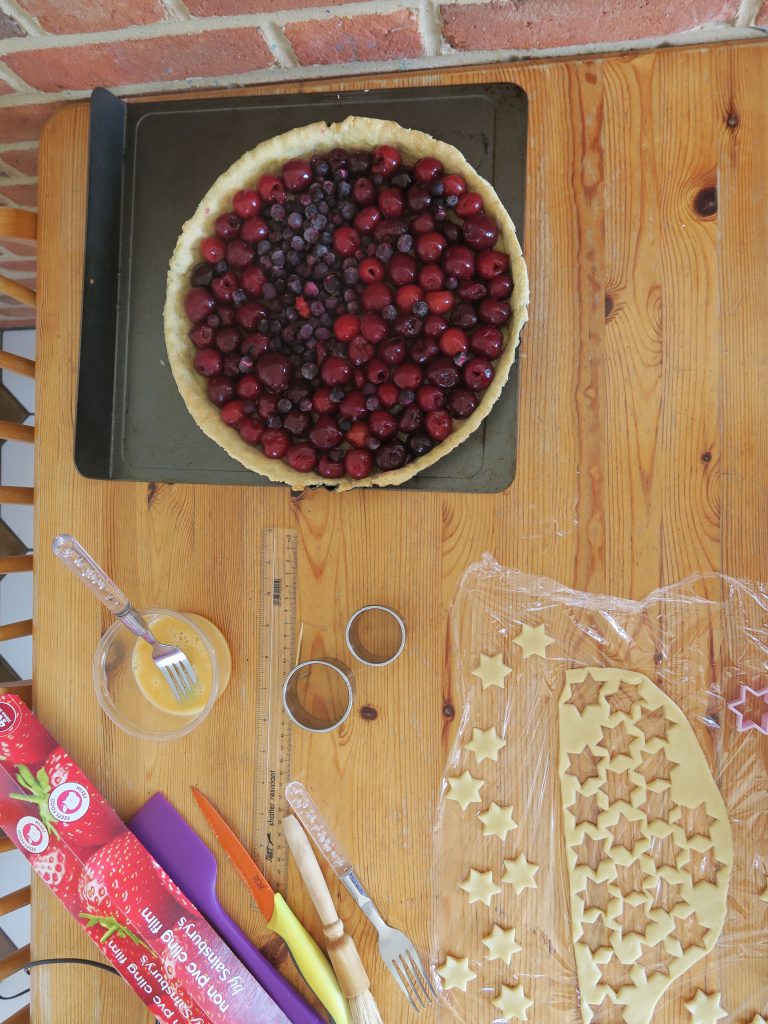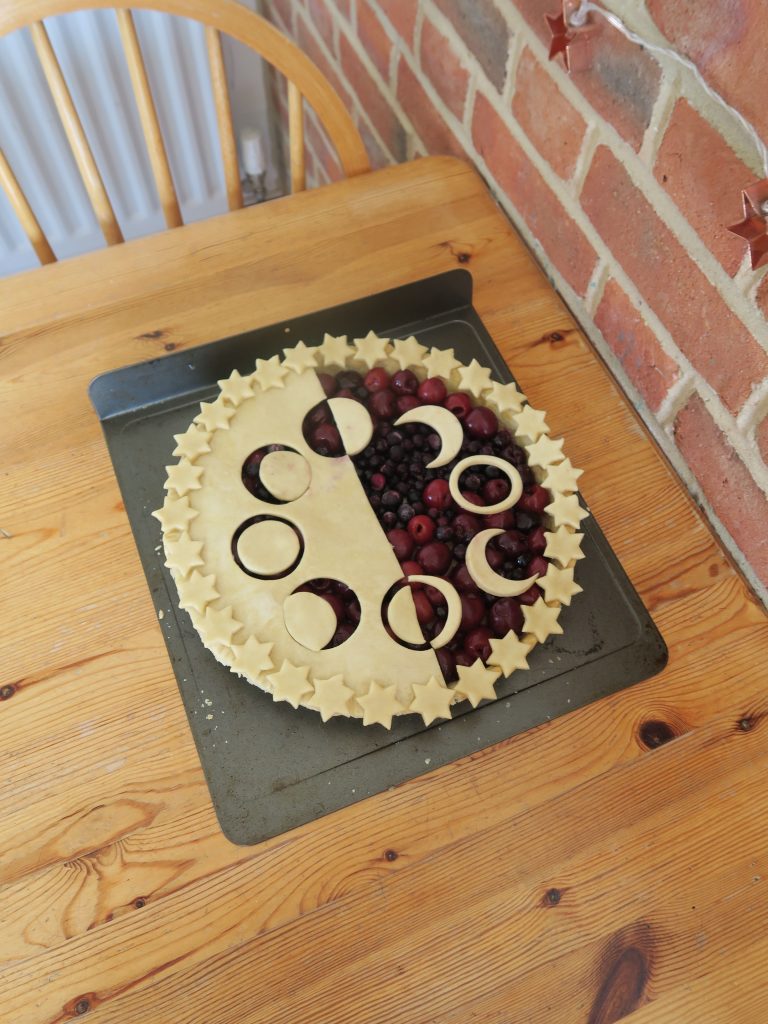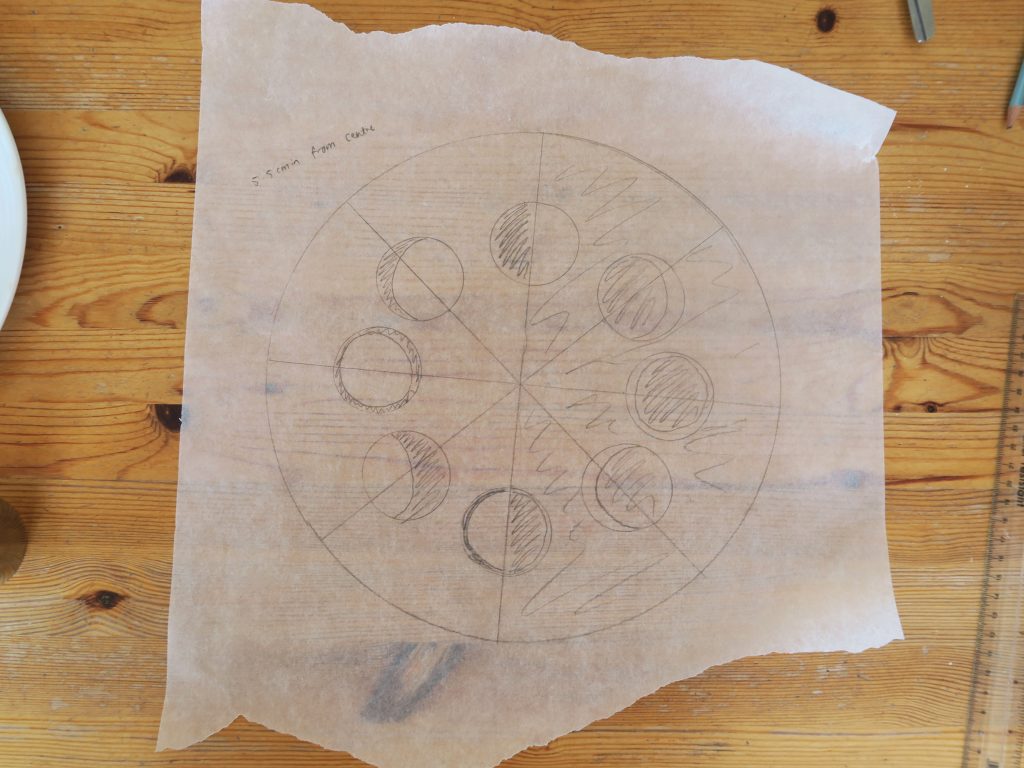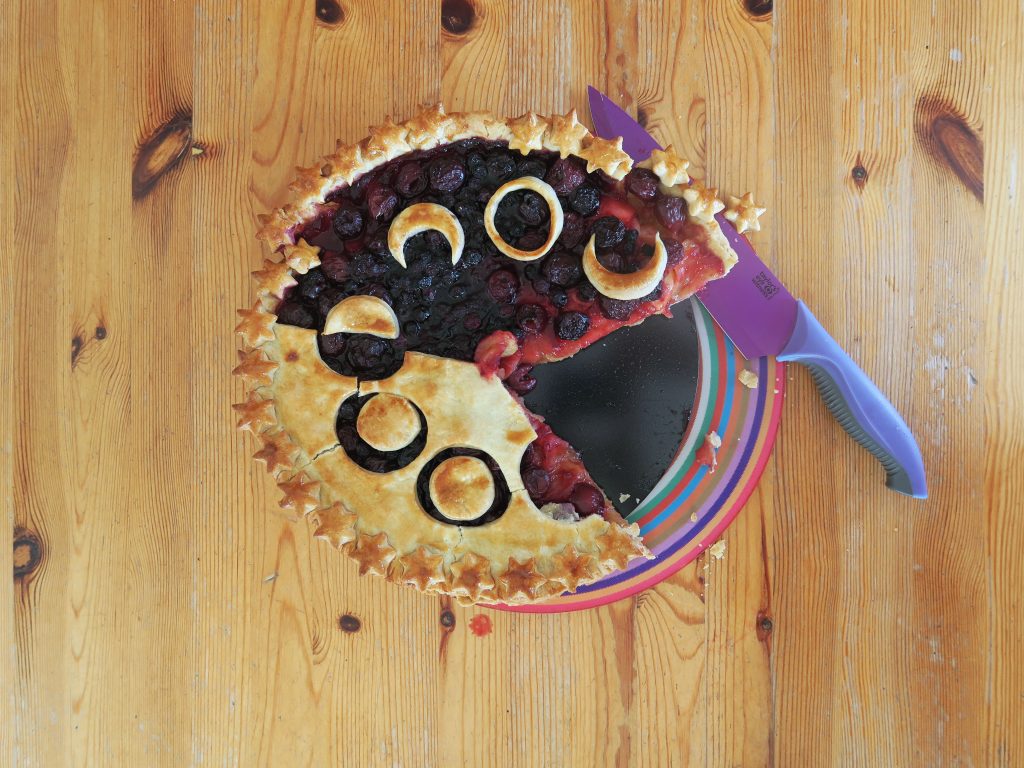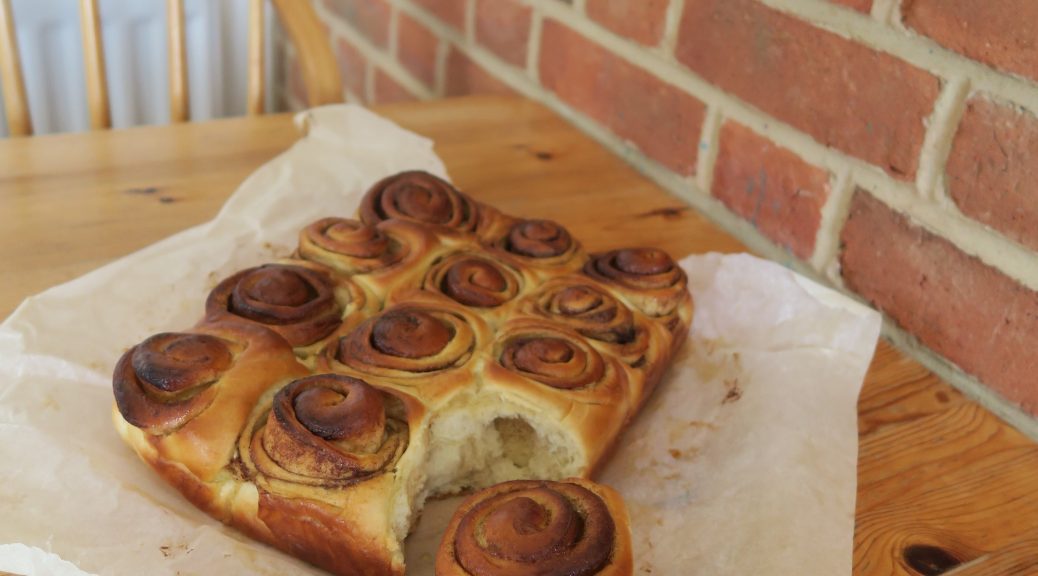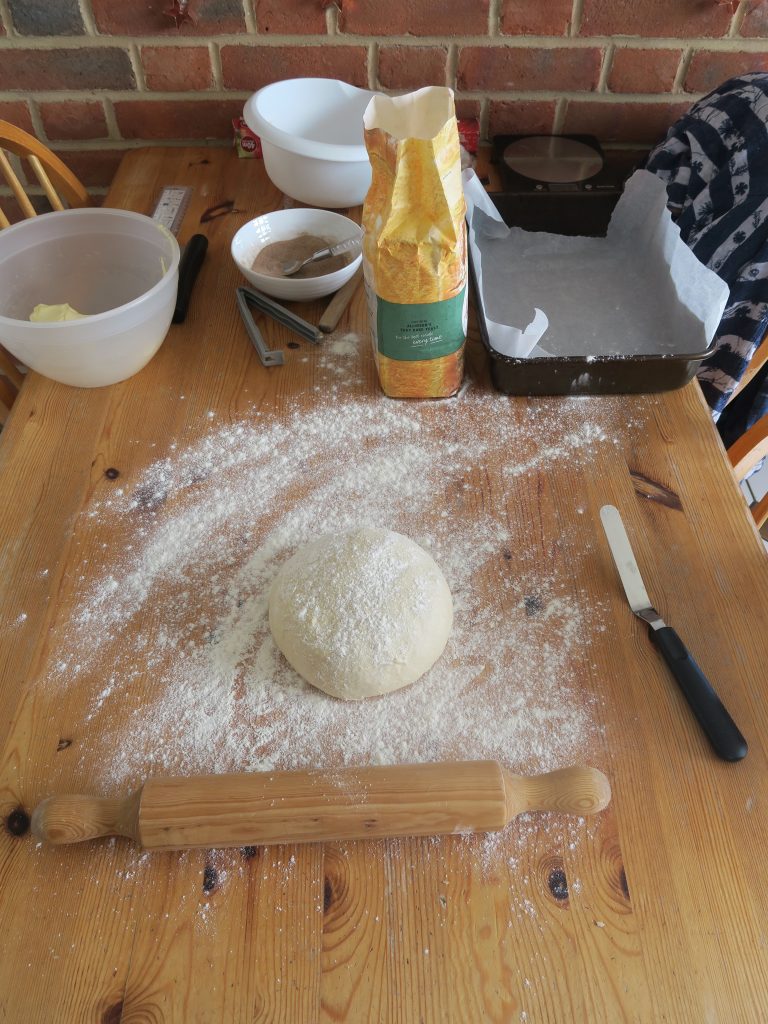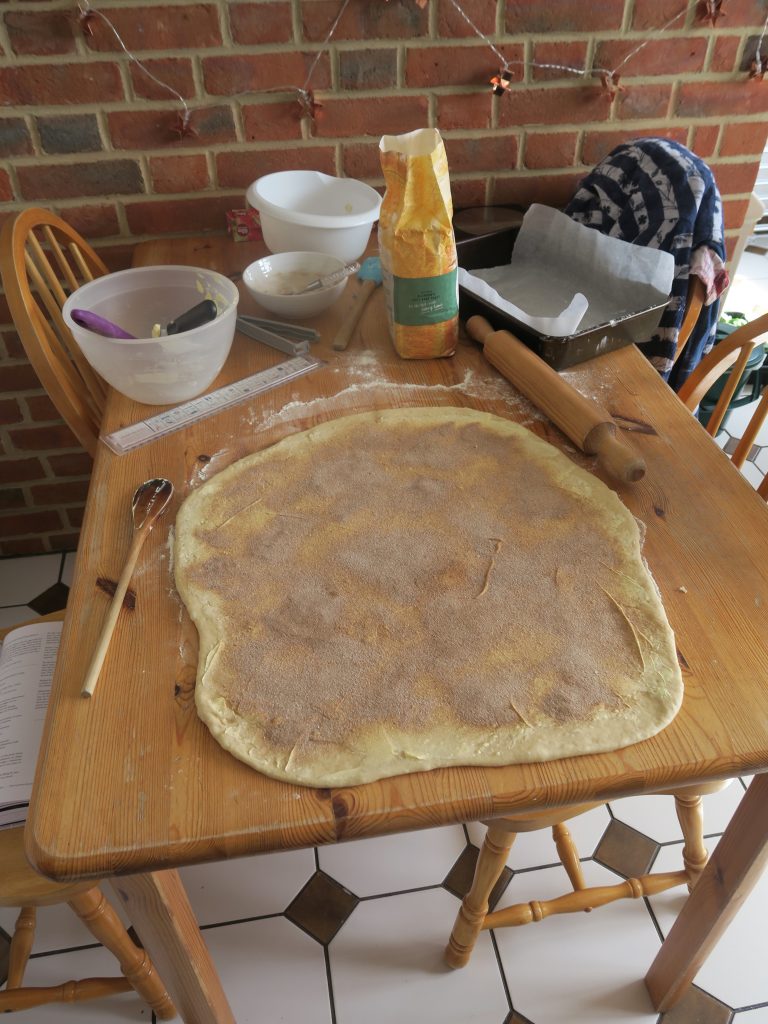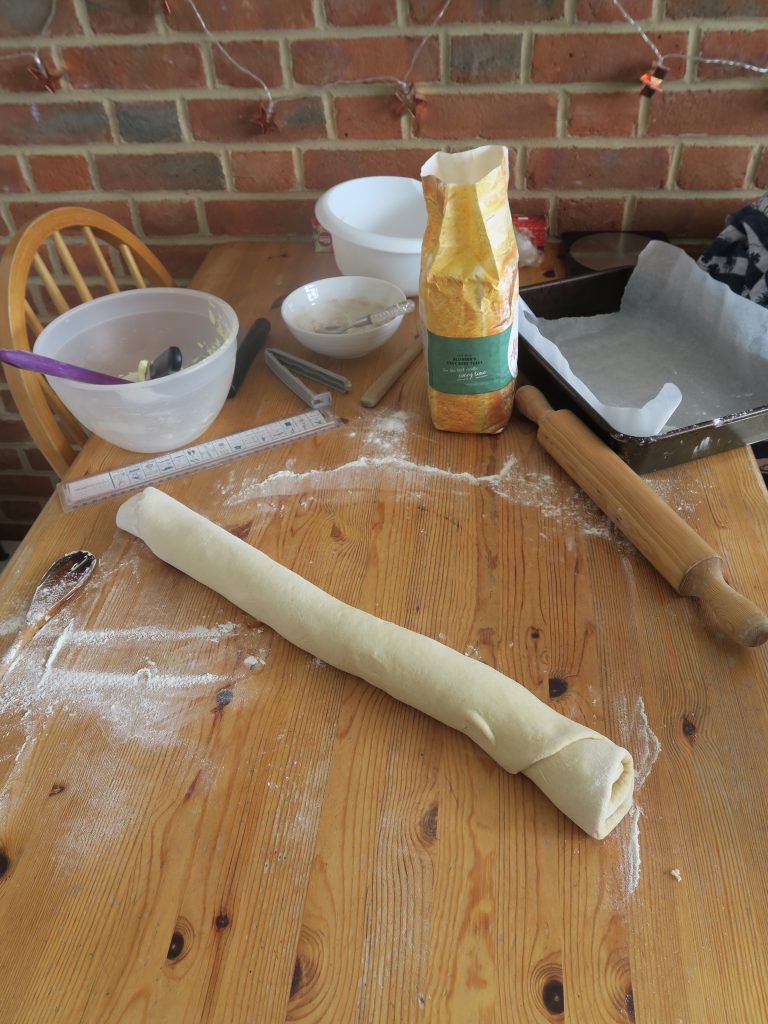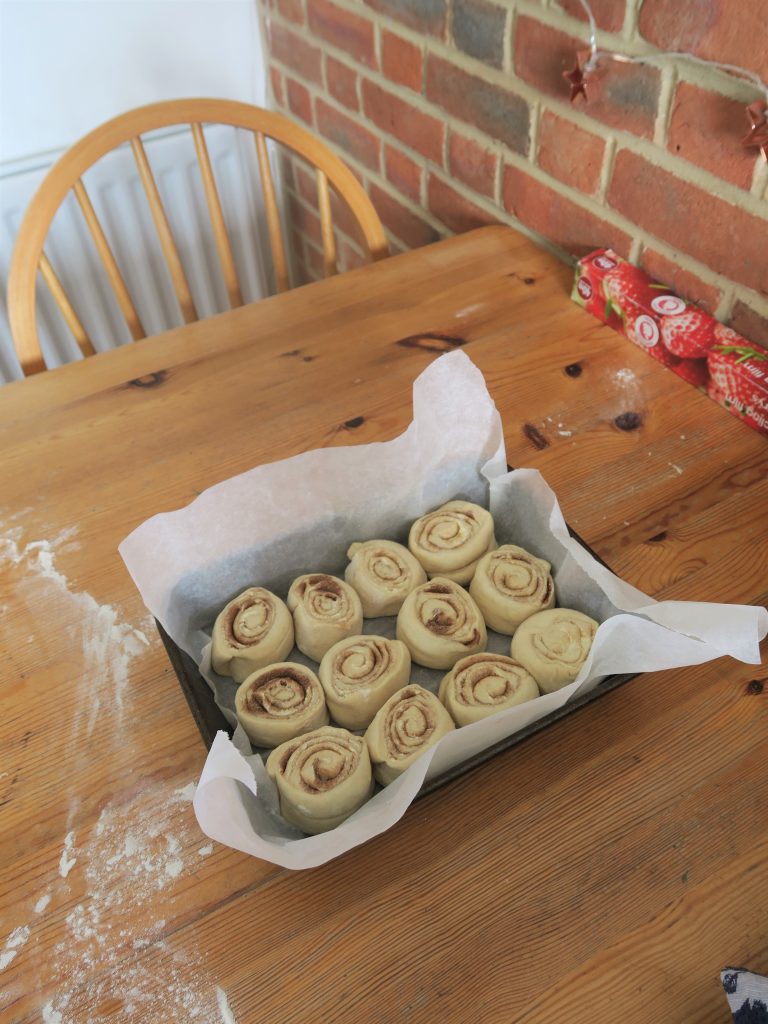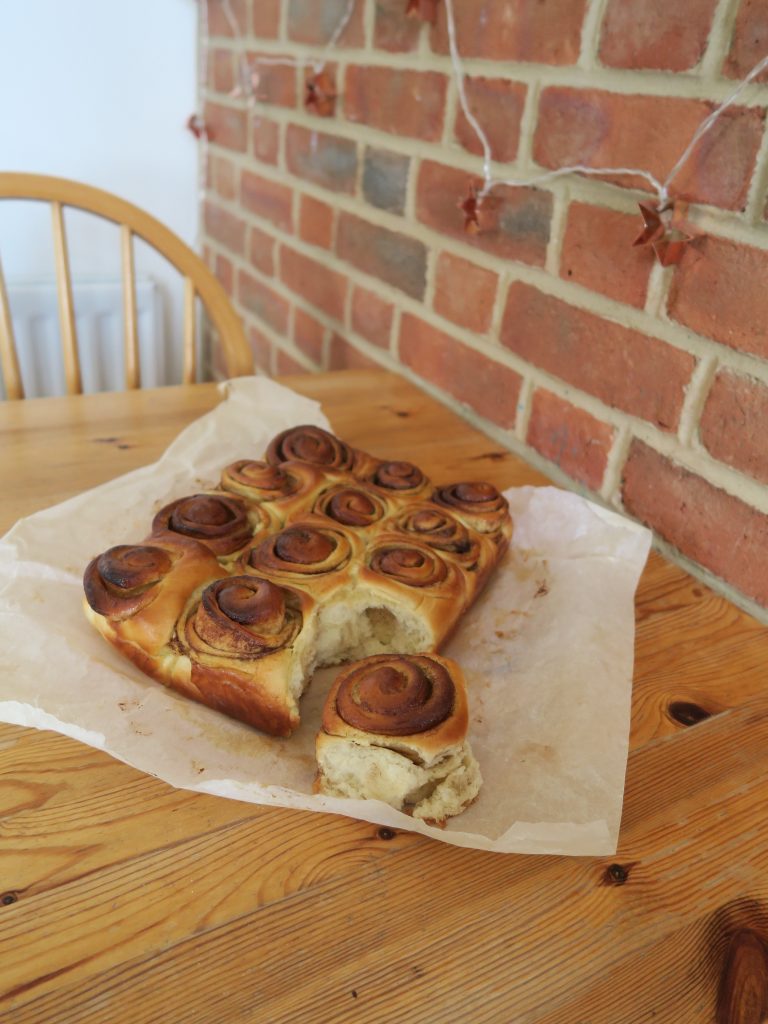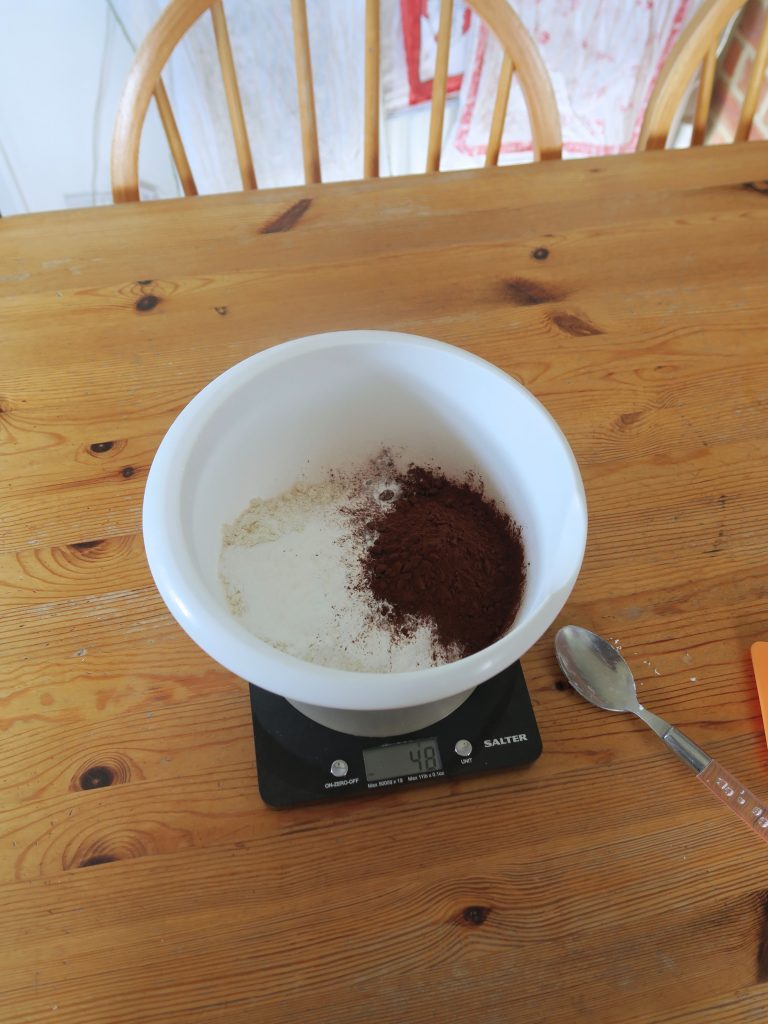
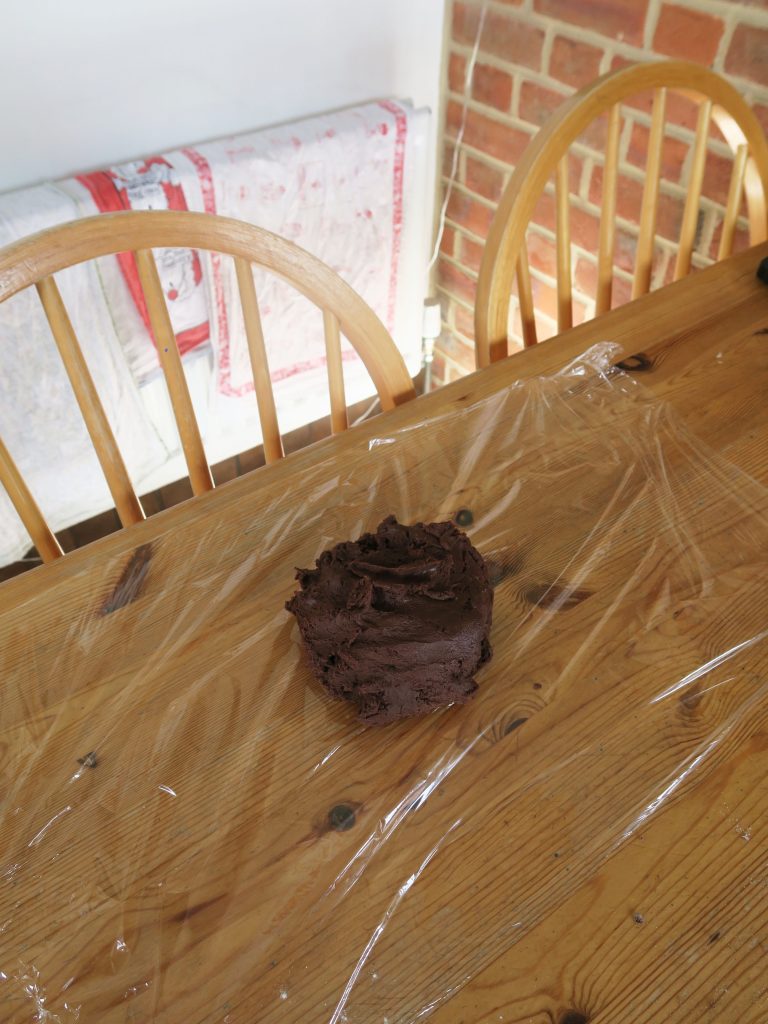
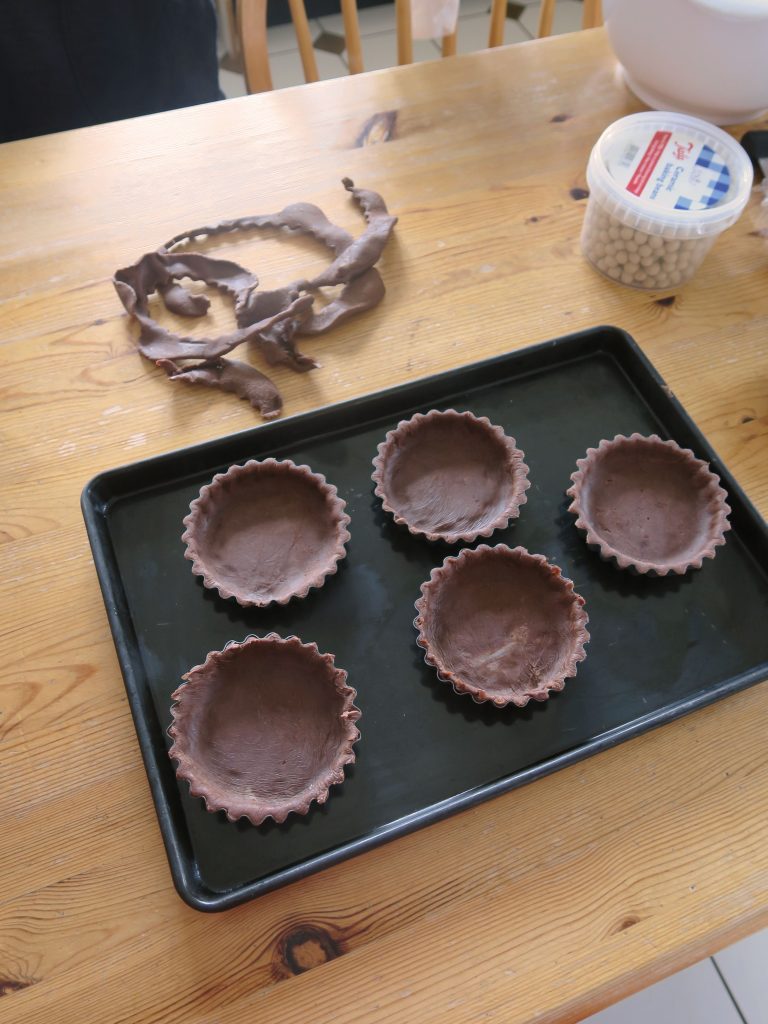
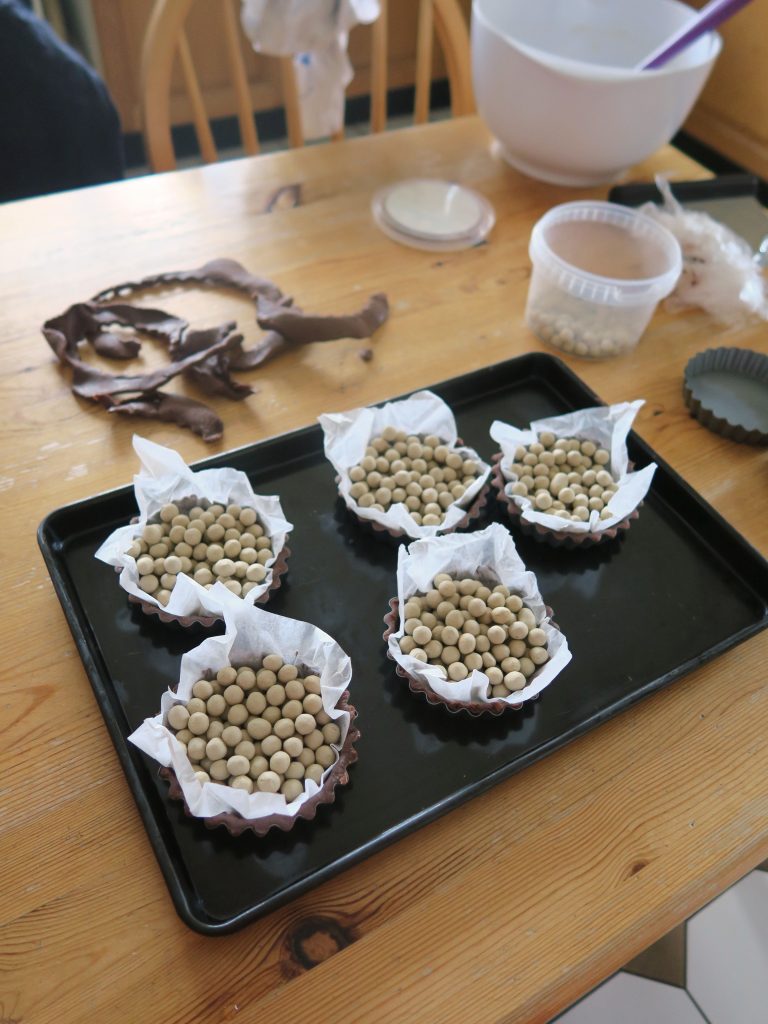
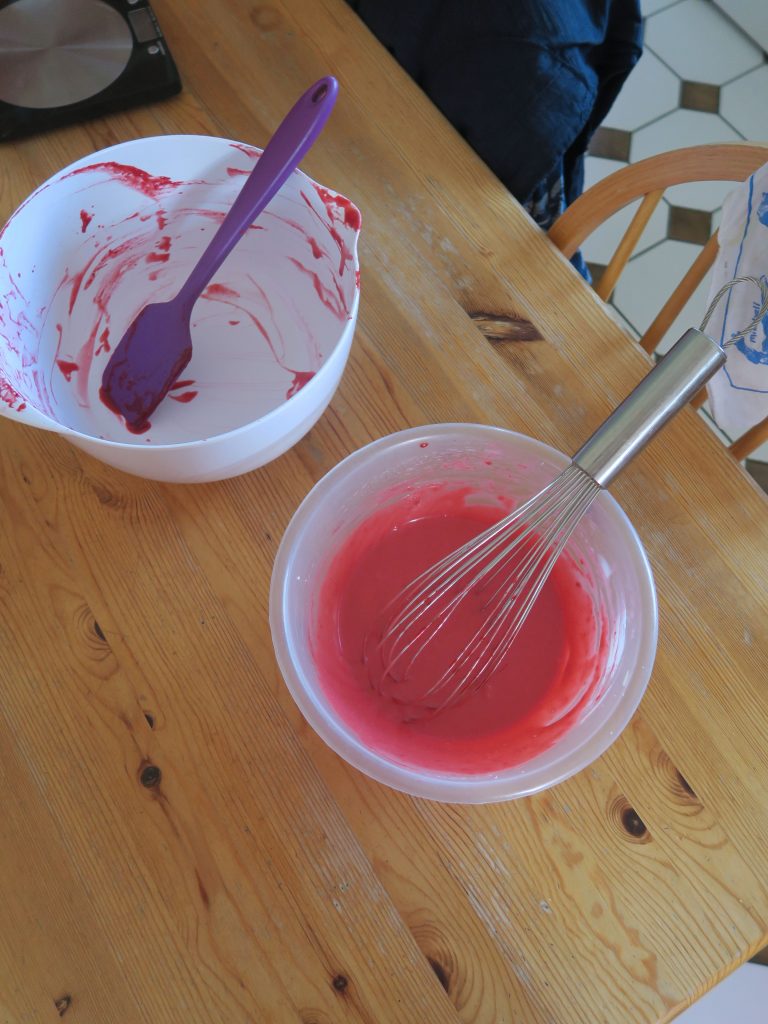
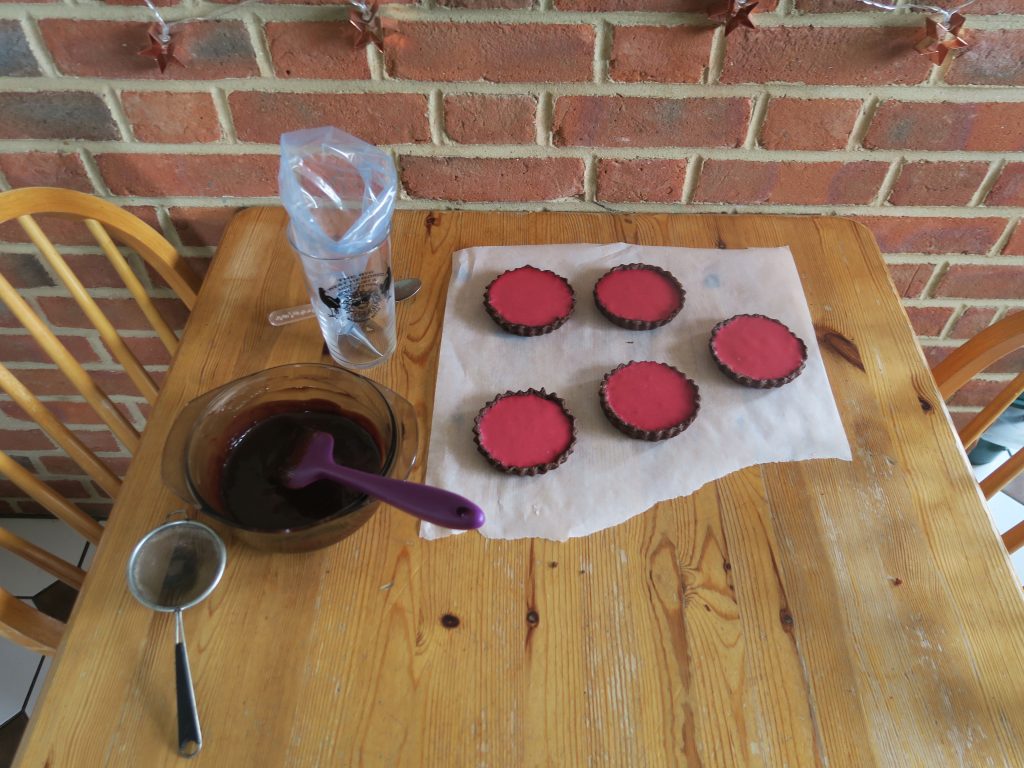
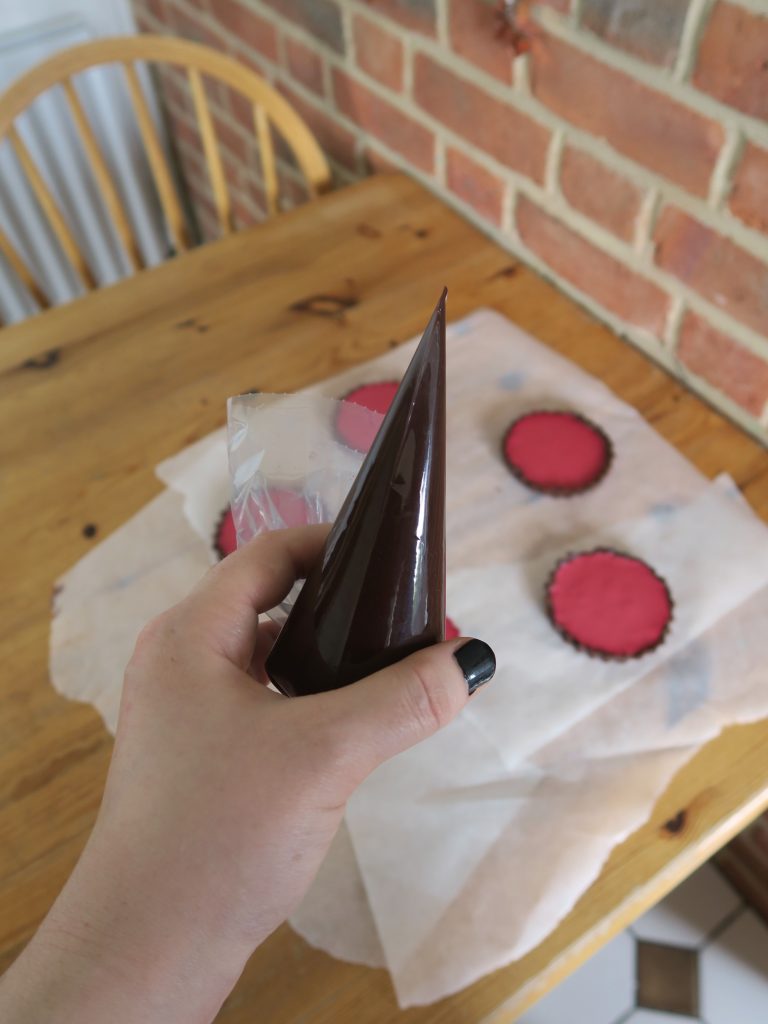
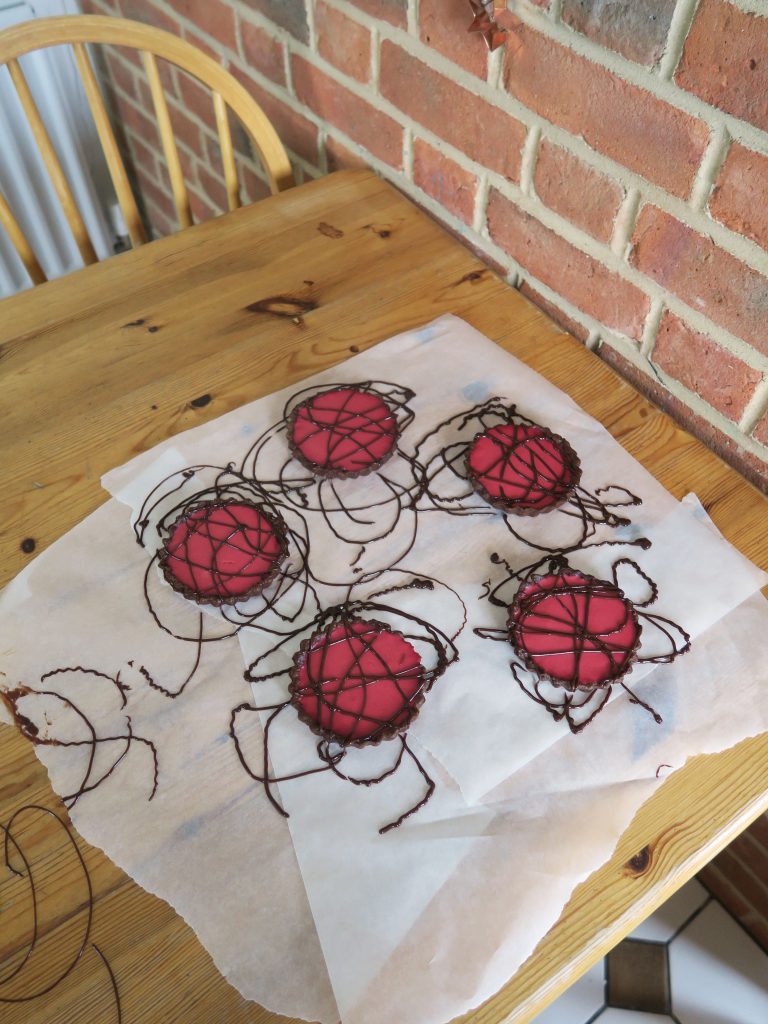
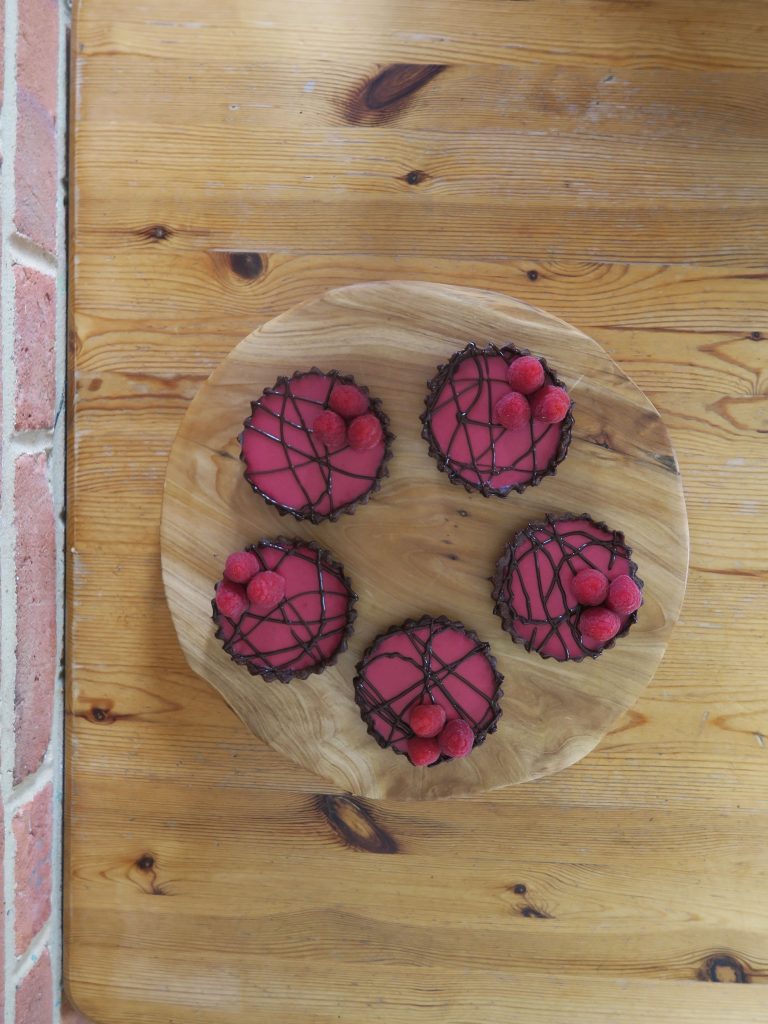
Recipe
Makes 6
Time: 2 hours plus chilling and baking time
Ingredients
For the chocolate pastry
- 125g plain flour
- 2tbsp icing sugar
- 2tbsp cocoa powder
- 135g butter
- 1 small egg yolk
- 1tsp lemon juice
For the raspberry chiffon
- 325g frozen raspberries
- 75g caster sugar
- Juice of 1 lemon
- 2 sheets of gelatine
- 100ml double cream
For the chocolate drizzle
- 50g dark chocolate
- 50ml double cream
To decorate
Method
- Begin by making the pastry. Put the flour, icing sugar and cocoa powder into a bowl. Add the butter in cubes and rub it into the flour with your finger tips until the mixture resembles fine breadcrumbs.
- Add the egg yolk and lemon juice and stir the mixture with a round bladed knife to bring together into a ball of dough. (You can go in with your hands at the end to bring it together if need be).
- Wrap the dough in cling film and leave to chill in the fridge for at least 1 hour.
- Split the dough into 6, take one and put the others back into the fridge. Roll your first bit of pastry into a circle, about the thickness of a 1p coin, between two sheets of clingfilm. You can use your tartlet tins as a guide as to the shape of the circled you role out by placing them on top of the pastry every now and then. You want the pastry to be about 2cm wider all around than your tin.
- Take the top layer of clingfilm off the pastry and then turn the pastry sheet upside down (so the bottom layer of clingfilm is on the top) and gently ease the pastry into the tart case.
- Press your fingers gently into the tart (especially around the sides) to make sure the pastry has taken the shape of the tin. Then fold the excess pastry enough so the top edge of the tin is covered all the way around. Take a rolling pin and role it across the top of the tin to cut off the excess pastry. (Don’t worry about removing this excess pastry yet as it’ll be easier once frozen).
- Repeat the lining of the tins, taking one piece of dough out of the fridge at a time until you have 6 lines pastry cases, with the top layer of clingfilm still on. Place these in the freezer for 20 minutes.
- Pre-heat an oven to 180C. Peel the clingfilm off the tart cases and then break off the excess pastry around the top (this should be much easier now the pastry has frozen).
- Cut 6 squares of greaseproof paper, around the same size as the tartlets, and crumple them up in your hands. Carefully un-crumble each one and then fit it inside the tart case. Then fill the tartlets with baking beans (or rice).
- Bake the pastry cases in the oven for about 15 minutes. Then take out the baking paper and beans and bake for another 5-10 minutes to crisp up completely. (The pastry wont be going in the oven again so make sure it’s perfectly cooked through before taking it out). Leave the pastry to cool completely.
- Now move onto the raspberry chiffon filling. Put the raspberries, sugar and lemon juice into a pan and simmer for 3-4 minutes, until the raspberries have defrosted and the sugar has dissolved.
- Meanwhile fill a small bowl with cold water and place the gelatine sheets in it to soften.
- When the raspberries have done simmering, take the gelatine, squeeze it to release the excess water and then stir it into the raspberries to dissolve.
- Sieve the raspberries into a large bowl. Make sure to work the raspberries through the sieve with a spatula, and to scrape off the pulp on the bottom of the sieve as that’s where all the good stuff is. Leave to cool completely.
- Whisk the cream up to soft peaks. Then whisk the cooled raspberry puree into the cream, a little bit at a time.
- Leave the raspberry mixture to thicken up a little bit, stirring every 15 minutes to check the consistency. You want it to be at the point where it’s just about to form a trail when a spoon is lifted out of the mixture and left to drip. At this point pour it into the cooled pastry cases until full and then leave them in the fridge to set completely.
- Once set move onto the chocolate drizzle. Chop the chocolate finely and put it into a metal or glass bowl. Heat the cream in a small pan until just below boiling and then pour it over the chocolate, whisking constantly, until melted.
- Pour the ganache into a pipping bag (either with a very small, round nozzle or a disposable one you can cut a small hole in the end of). You then need to wait for the ganache to reach the consistency where it pipes in a smooth line but hasn’t set too much (the only way to find this out is to try pipping every 15 minutes or so and see what it looks like).
- When ready to pipe take your tartlets and spread them out on a worktop. Then pipe loose swirls, loops and circles over the tops. Leave for 20 minutes to set.
- To finish off take the tarts out of their tins and then top with some fresh raspberries.
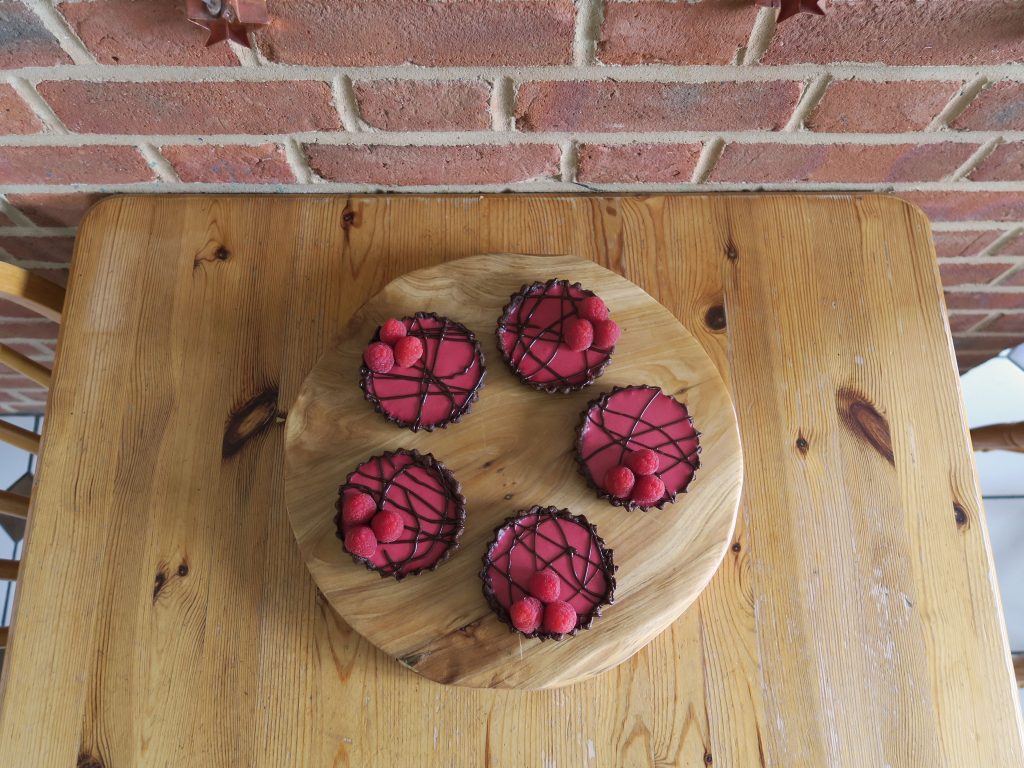
Thanks for reading!
Emma x
